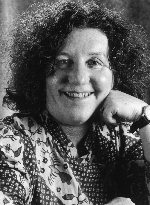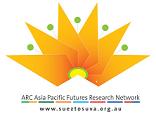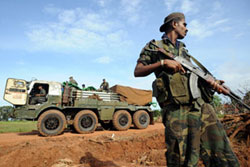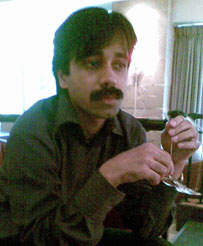KOREAN
DREAMS: PAINTINGS AND SCREENS OF THE JOSEON DYNASTY, Sydney, 5 March
- 8 June 2009. This exhibition is the first showing of traditional
Korean painting at the Art Gallery of NSW. It will comprise Korean screens,
hanging scrolls and album leaves dating from the 17th to 19th centuries.
It will be accompanied by a Korean Dreams study day on 7 March 2009
(12pm - 5pm) in the Centenary Auditorium, Art Gallery of NSW, The Domain,
Sydney. See http://www.artgallery.nsw.gov.au/exhibitions/coming/korean_dreams
CICADA FOREST: THE JAPANESE TANKA AND SHAKUHACHI,
Canberra, 4 March. The short form lyric called 'tanka' has
a history of over 1,300 years in Japan. Amelia Fielden a well-known
translator of modern tanka will give a brief explanation of the tanka
form and its background. Mariko Kitakubo, a popular contemporary poet,
and Amelia will then perform, in Japanese and English, a large selection
of poems from Cicada Forest, an anthology of poems, to musical accompaniment
by Rupert Summerson playing the shakuhachi. 6.00pm, Asia Bookroom, Lawry
Place, Macquarie. Please RSVP to books@asiabookroom.com
or call 6251 5191 by 3 March 2009.
HONG KONG: Luncheon with Prof KC Chan, Hong Kong Secretary for
Financial Services and the Treasury, Sydney, 4 March 2009.
How is Hong Kong grappling with the current Global Financial Crisis?
And how are investors protected in these tumultuous times? Westpac and
Asialink invite you to a luncheon with Prof KC Chan to explore these
questions. 12.30pm to 2.30pm Westpac Place, Level 22, 275 Kent Street,
Sydney. COST: $80 per head / $70 (Asialink Member) (incl GST) Please
complete the registration forms available for download from http://www.asialink.unimelb.edu.au/calendar/events/
featured/luncheon_with_prof_kc_chan. Email Ken Lee at k.lee@asialink.unimelb.edu.au
or Call: 03 8344 3583.
INTERNATIONAL WOMEN'S DAY luncheon, Canberra,
11 March 2009. Julianne Cowley Australian board member of the
Ayui Foundation, a non-denominational, not-for-profit hostel in Chiang
Rai Thailand will speak at this luncheon at the Southern Cross Yacht
Club, Lotus Bay, Yarralumla, $40 pp. Enquiries to Coral Fleming 6286
5435 coraljf@grapevine.net.au
or Noelle Leonard 6239 5140.
CONFERENCE ON SECURITY SECTOR REFORM IN INDONESIA,
Sydney, 12-13 June. This conference will consider current developments
in security sector reform (SSR) and the correlation between SSR and
the democratisation process in Indonesia. It is being organised by Indonesian
Solidarity (IS) a nonprofit human rights organisation at the Sydney
Mechanics' School of Arts, 280 Pitt Street. Contact: indonesian_solidarity@yahoo.com.au
TRANSMISSION OF ACADEMIC VALUES IN ASIAN STUDIES
workshop, Canberra, 25- 26 June 2009. Call for
papers by 27 February. Proposals are invited for brief
presentations (15-20 minutes) on how to transmit valuable features of
the Asian studies field to new generations. See www.aust-neth.net/workshop.php.
Contact: helen.mcmartin@anu.edu.au.
|
JIU: COMMEMORATION
AND CELEBRATION IN THE CHINESE-SPEAKING WORLD, conference, Sydney, 9-11
July 2009. The biennial China Studies Association of Australia
(CSAA) conference will be held at Women's College, University of Sydney.
It adopts the theme of ‘jiu’, taking up the challenge of
both celebrating and commemorating the achievements and hardships of
the past century in the Chinese-speaking world. The call for papers
and panels closes in March 2009. See http://www.conference.csaa.org.au/index.php?conference=CSAA
&schedConf=2009&page=schedConf&op=cfp
The China Node of the Asia Pacific Futures Research
Network is offering 10 student accommodation scholarships for the conference.
The scholarship holders are expected to attend a Postgraduate Workshop
on 9 July. Registrants who are enrolled in a PhD at an Australian university
and are not based in NSW should send 250 words explaining what they
hope to gain from the networking opportunity and from the conference
itself. Please send this and a supporting statement from a supervisor
to both: Luigi.Tomba@anu.edu.au
and tsch9269@mail.usyd.edu.au
THE 18TH NEW ZEALAND ASIAN STUDIES SOCIETY
INTERNATIONAL CONFERENCE 2009, Wellington, 6-8 July, 2009.
This will be an open, multidisciplinary conference. Participants are
invited to submit panel or paper proposals presenting original research
on any Asia-related topic. For more information, please the see conference
website: http://www.nzasia.org.nz/conference.html.
Paper abstracts due by 15 March 2009
to the chair of the organising committee: stephen.epstein@vuw.ac.nz
JSAA-ICJLE 2009 Conference, Sydney, July 13-16,
2009. The Japanese Studies Association of Australia (JSAA)
is delighted to host JSAA-ICJLE2009, a joint conference for the JSAA
conference and the International Conference on Japanese Language Education
(ICJLE) in Sydney. The conference will feature research and discussion
in various disciplines of Japanese language and studies. The main theme
of the conference will be "Bridging the gap between the Japanese
language and Japanese studies". The conference aims to provide
a forum for Japanese language and studies academics and educators from
around the world to meet and share ideas beyond and across their disciplines.
See http://www.jsaa.info.
MAJU BERSAMA The Australian Society of Indonesian
Language Educators (ASILE)
Biennial Conference, Sydney, 14-15 July, 2009. ASILE is now
calling for expressions of interest for papers and workshops at the
2009 conference. This is an excellent opportunity to contribute to and
participate in a conference with a national audience interested in directions
for the future of Indonesian language education. Small teams of presenters
working together on projects are also encouraged to register. Any queries,
please contact: Andrea Corston phone: (08) 8683 4751; acorston@internode.on.net. |
 Welcome
to all Asian Currents readers from me, Kathryn Robinson, the new President
of the ASAA. For those of you who don’t know me, I am an anthropologist
from the Australian National University and Indonesia is my primary research
area. This brief message comes to you from Aceh where I am teaching social
science research methods for health research to a group of Aceh researchers.
(The Aceh Research Training Institute [ARTI] http://www.arti.unimelb.edu.au
was featured in Asian Currents last year). ARTI represents the kind of
significant links that we can build as teachers and scholars of Asia.
Welcome
to all Asian Currents readers from me, Kathryn Robinson, the new President
of the ASAA. For those of you who don’t know me, I am an anthropologist
from the Australian National University and Indonesia is my primary research
area. This brief message comes to you from Aceh where I am teaching social
science research methods for health research to a group of Aceh researchers.
(The Aceh Research Training Institute [ARTI] http://www.arti.unimelb.edu.au
was featured in Asian Currents last year). ARTI represents the kind of
significant links that we can build as teachers and scholars of Asia.





 Q:
When did you become interested in studying Asia and why?
Q:
When did you become interested in studying Asia and why?  Naadir
Junaid
Naadir
Junaid  The
Asian Studies WWW Monitor:
The
Asian Studies WWW Monitor:  Democratic
Governance in Timor-Leste, Reconciling the local and the national
edited by David Mearns, Charles Darwin University Press 2008
Democratic
Governance in Timor-Leste, Reconciling the local and the national
edited by David Mearns, Charles Darwin University Press 2008  Applications
are invited from Dutch and Australian scholars specialising in the study
of Southeast Asia to convene an academic workshop in the period 2009
- mid 2012. Workshops may take place in The Netherlands, Australia or
Southeast Asia. They must feature collaboration between Australian and
Dutch scholars and actively involve scholars/experts from Southeast
Asia. See funding guidelines and selection criteria at:
Applications
are invited from Dutch and Australian scholars specialising in the study
of Southeast Asia to convene an academic workshop in the period 2009
- mid 2012. Workshops may take place in The Netherlands, Australia or
Southeast Asia. They must feature collaboration between Australian and
Dutch scholars and actively involve scholars/experts from Southeast
Asia. See funding guidelines and selection criteria at: